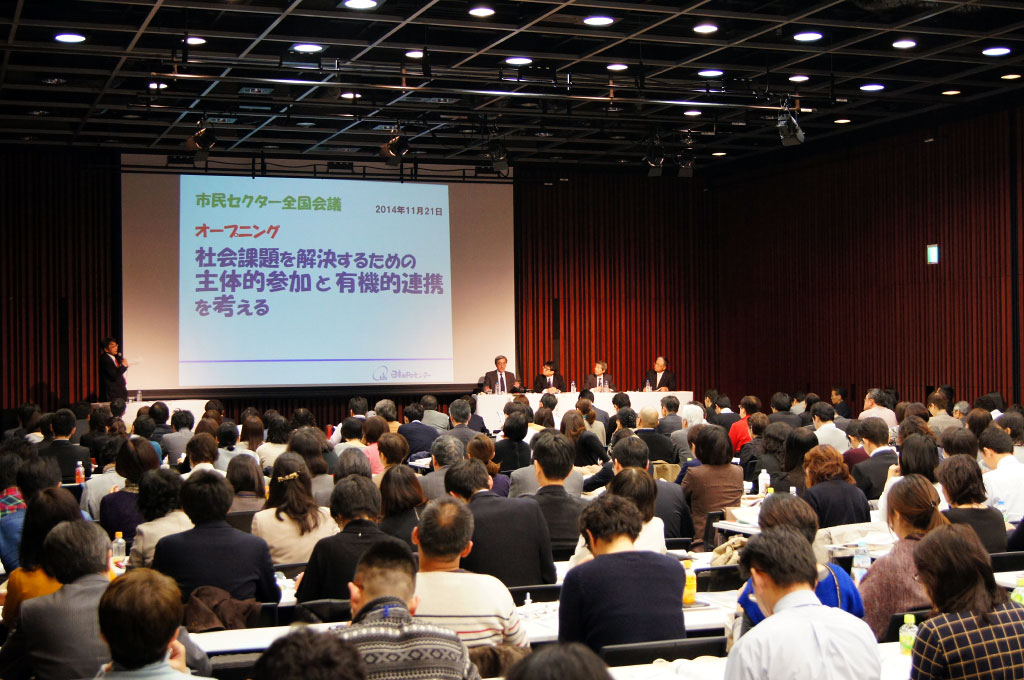Multi-Sector Partnerships
Promoting Multi-Sector Partnerships
JNPOC strives to create, maintain, and cultivate partnerships and networks within the civil sector as well as with business and government sectors. JNPOC has an open network with local NPO support centers across Japan and around 60 major corporations among our corporate membership. The existing network is one of our strongest assets, and is often the basis for developing our programs.
With Business
Save Japan Project
Corporation x environmental nonprofits x local NPO support centers
Partnering with Sompo Japan Insurance, JNPOC has collaborated with local environmental NPOs/NGOs to implement the Save Japan Project throughout all 47 prefectures in Japan. The project aims to raise public awareness on the protection of endangered species. Our ongoing recovery effort grapples with the rapidly increasing destruction of endangered species’ environments. About 25,000 people have participated in 476 environmental workshops and events held across Japan.
Save Japan Project website (Japanese)
Save Japan Project: 10 Years’ Footprints (2011-2020) report (PDF: 4.4MB)

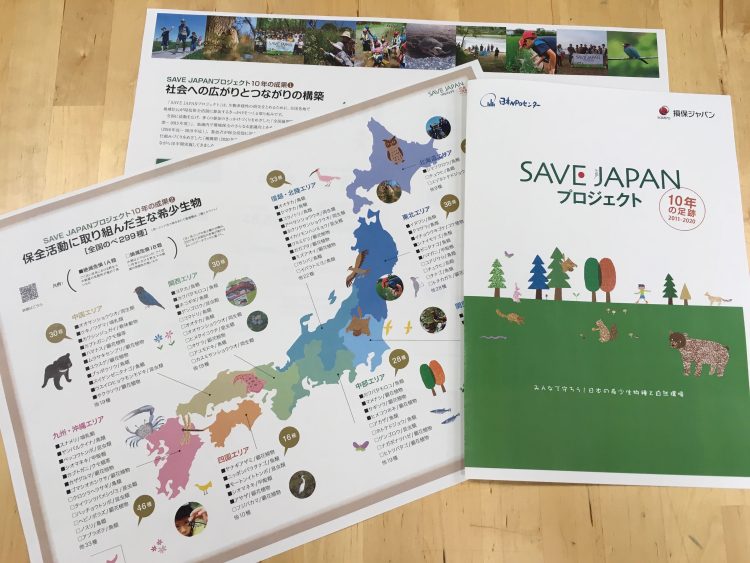
Tsunagaru Bosai Project
Building Regional Networks of Mutual Aid in Times of Disaster
Faced with major natural disasters in Japan, we need to pay special attention to those in need of distinct care like children, the elderly, the disabled, those with medical conditions, and non-Japanese-speaking people. In collaboration with Sompo Japan Insurance, we launched the Connected Disaster Prevention Project, an initiative to build regional networks that will encourage mutual aid in the event of a disaster.
The project is carried out using the network of Children’s Centers. The participants, not only the children but their family members and the residents, learn in an interactive and hands-on way how to equip one another with essential disaster preparedness skills.
Tsunagaru Bosai Project website (Japanese)
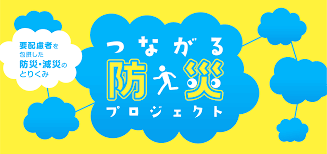
Takeda Grant Program Supporting Women’s Lives
In partnership with Takeda Pharmaceutical, JNPOC has been implementing a grant program since 2022 to support nonprofit organizations assisting women facing difficulties. Since the program’s inception, JNPOC has also conducted a fact-finding survey to understand the state of nonprofits specialized in responding to difficulties among women. In response to findings that many of the organizations were struggling with issues related to human resources and diversifying their revenues, we have organized seminars to enhance organizational capacities and networks among these nonprofits.
Takeda Grant Program Supporting Women’s Lives website (Japanese)
NPTech Initiative
Promoting IT Use among NPOs
In 2023, JNPOC launched the NPTech Initiative to promote the use of digital technology by nonprofits in collaboration with leading IT services companies such as NTT DATA, Dell Technologies, Intel, and TIS. Developed from a previous project with NTT DATA that aimed to nurture social technology officers (STOs) for the same purpose, the initiative focuses on providing IT training to nonprofits directly and contributing to solving Japan’s social issues by promoting the use of IT. Experts from the participating IT services corporations give IT-related online lectures to nonprofits nationwide.
NPTech (Japanese)
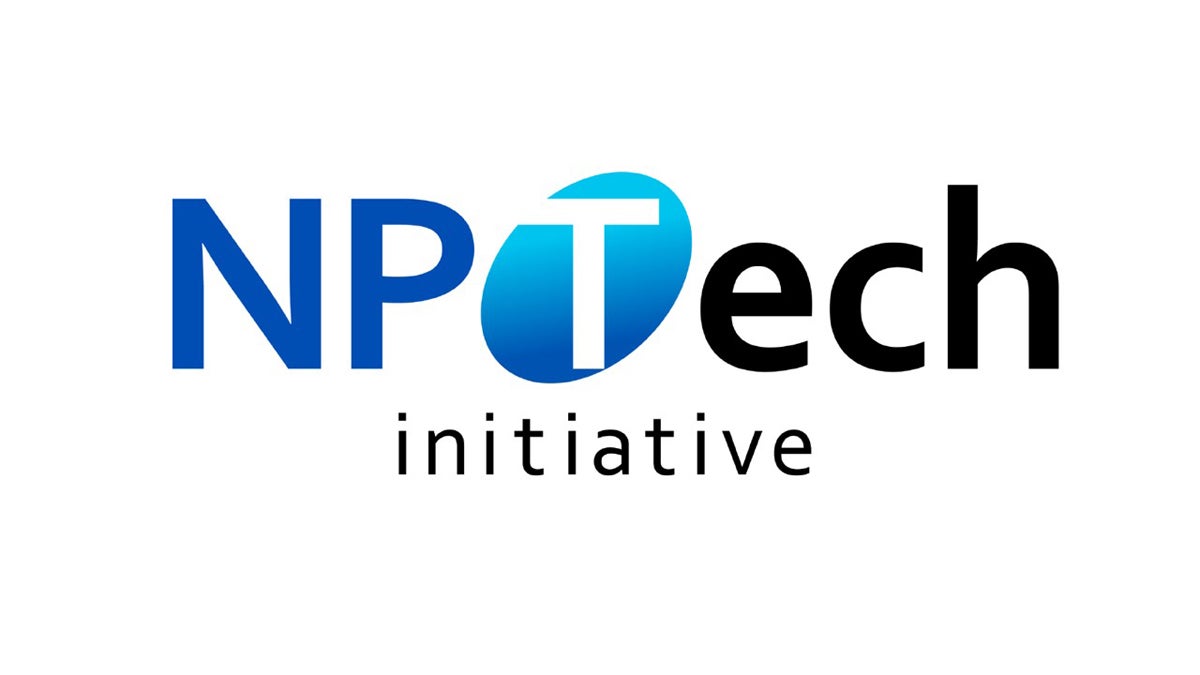
Qadai-Lab
While private companies have been committed to the social good through CSR (Corporate Social Responsibility) initiatives, they are also seeking the possible development of products or services associated with the concept of CSV (Creating Shared Values), which pursues benefits for both the companies and the communities they serve. To be able to develop these products and services, corporation first needs to understand what the current social issues (or qadai in Japanese) are for these communities. Responding to such emerging corporate needs, JNPOC, in collaboration with Dentsu B Team and Japan Management Association (JMA), created a think tank called Qadai-Lab. JNPOC interviews active nonprofits to identify and collect front-line issues from them. These issues are then presented at a gathering session called Qross Session so that the companies in attendance can learn about the cutting-edge social issues and challenges and discuss possible solutions, which they can take away for their own program development.
Green Gift Project (Ended)
Corporation x local Environmental Partnership Offices x environmental nonprofits
Between 2013 and 2022, local environmental NPOs, Environmental Partnership Offices (EPOs), Tokio Marine & Nichido, and JNPOC collaborated to organize nationwide citizen-participatory environmental protection events. This project aimed at encouraging environmental awareness among children, creating opportunities and models for collaboration among diverse stakeholders, and nurturing local leaders who can sustainably protect the environment.
The Green Gift Project officially ended at the end of September 2022; we produced the final report that summarizes the project’s achievements and results over the nine years.
- Participating NPOs: 176 environmental NPOs from 42 prefectures around Japan
- Number of events held: 356
- Number of event participants: 19,331 (including 7,855 children and 1,268 employees of Tokio Marine & Nichido departments and branches)
- Number of environmental awareness tools (videos, booklets, etc.) developed during the 3 years of the COVID-19 pandemic: 29
Green Gift Project website (Japanese)
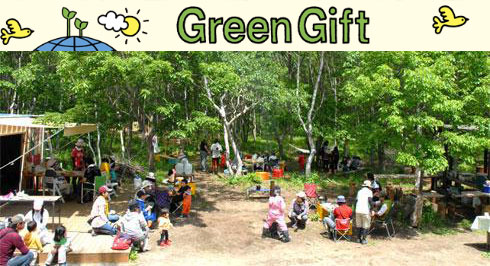
Dong-do-co Project (Ended)
Foundation x local community centers for children x nonprofits x children
Since 2007, with a grant from Sumitomo Life Welfare and Culture Foundation, JNPOC has been funding a collaborative project called the Dong-do-co Project that bridges local NPOs and local community centers for children (or jidokan). The project aims to provide space for these two different entities to stimulate each other, weaving the expertise of local NPOs into the spaces and networks of local children’s community centers so that these children can interact with a variety of adults in the community beyond the scope of their day-to-day activities in school and at home.
In 2018, 18 programs were implemented in 15 prefectures. The activities in these programs focused on children’s centers and the children getting involved in local issues, including hands-on opportunities for children from economically disadvantaged families, support for children with foreign roots, awareness raising for disaster prevention, involving children in community development, passing on traditional local culture, and getting in touch with nature.
Dong-do-co Project website (Japanese)

STO Project (Ended)
In the midst of the fast-paced changes in technologies, strengthening the capacity of ICT (Information and Communication Technology) is one of the most pressing issues for nonprofit organizations as they try to make their organizational management more efficient and effective as well as implement strategic activities in pursuing their mission. In collaboration with forward-thinking nonprofits like Code for Japan and ETIC, JNPOC has attempted to develop the social sector version of a chief technology officer (CTO) and coined the term “social technology officer (STO),” where an STO is expected to be the advisory of IT management for nonprofit organizations which often lack IT capacity and IT-related human resources. JNPOC published a brochure for IT experts explaining the concept and how to become an STO and has also organized workshops to familiarize them with this new concept.
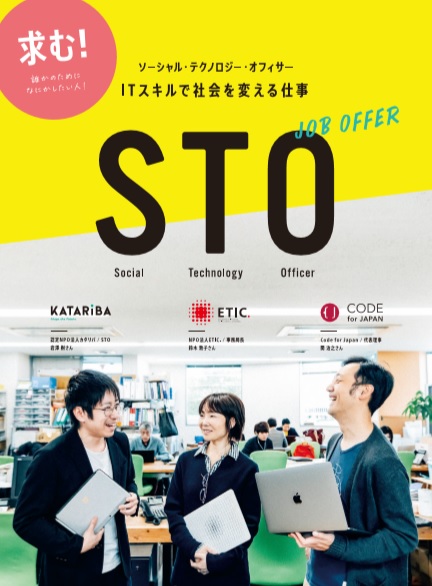
Kao Minna-no-Mori-no-Oendan Project (Ended)
Corporation x environmental nonprofits x college students
Partnering with Kao Corporation, the Project aims to facilitate a dialogue on environmental issues across generations, and raise awareness for future environmental protection. College students visit environmental groups engaging in forest-building and write an online article about the group and on their experience, which can be read here. Between2014 and 2006, approximately 90 college students have worked as news reporters and written articles about NPOs working on forest management.

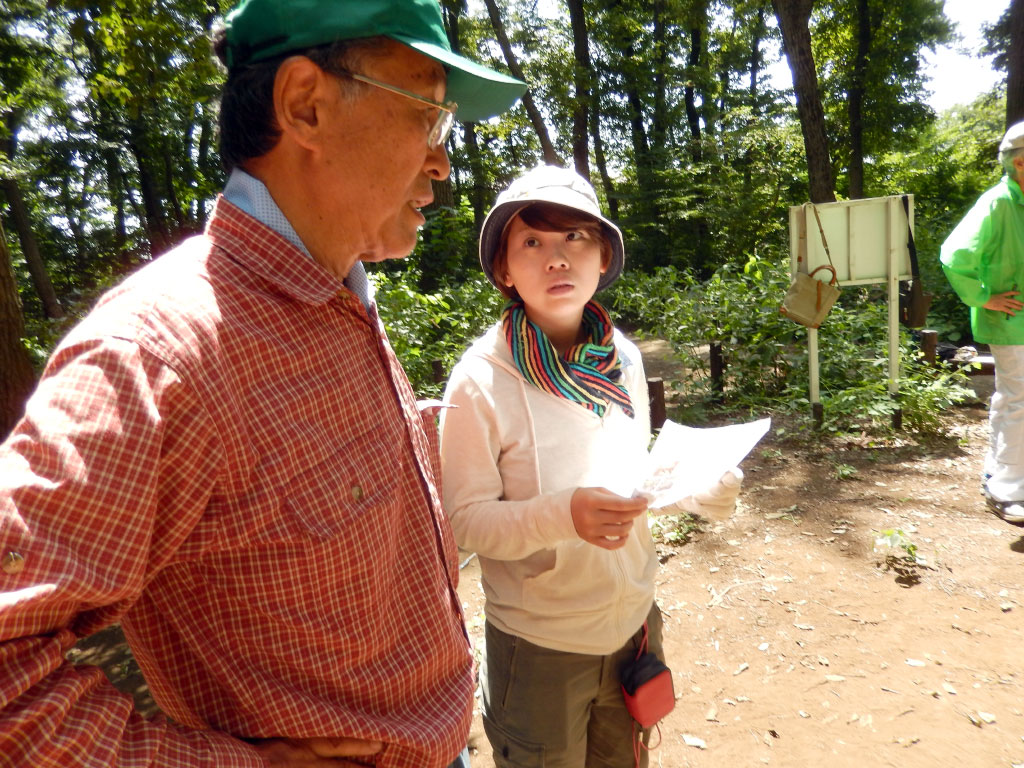
With Governments
Annual Forum for Nonprofits: Local Government Dialogue
JNPOC has created and facilitated an annual forum in which local nonprofits and local governments engage in inter-sector collaboration, allowing both to have a dialogue that transcends their respective sectors and promotes further participation in social and civic activities.
With Civil Society Actors
CEO Meeting
JNPOC conducts a meeting with executive-level directors of (private) nonprofit support centers across Japan every three months. This is an opportunity for the leadership to discuss and exchange ideas on issues of organizational strategy and management, and on topics and messages that NPO support centers must collectively convey to society. With participants from across Japan, the meeting is also a place where the people can discuss topical issues surrounding the status of nonprofits, such as NPO law and tax system changes and reforms, and take necessary collective action, such as submitting written petitions to the government.
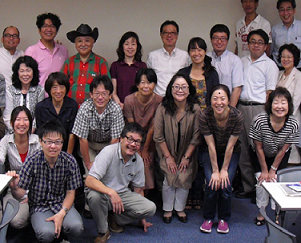
NPO/NGO Network for Advancing Social Responsibility
JNPOC serves as the coordinating organization for a unique network called NPO/NGO Network for Advancing Social Responsibility, in which about 30 nonprofits members discuss, advocate, and engage with various social responsibility (SR) issues for the further improvement of the civil sector. The Network has held a variety of SR workshops and annual forums in addition to the monthly meetings. It consolidates the collective voice of NPO/NGOs and dispatches representative members to a domestic SR conference as well as an ISO26000 international conference.
NPO/NGO Network for Advancing Social Responsibility (Japanese)

Civil Sector National Conference
JNPOC is conscious of the importance of developing a robust civic sector that is trusted among the citizens and is able to play its expected role in Japanese and global societies. This is why we have been hosting the biannual Civil Sector National Conference in which the leaders and future leaders of different types of nonprofits, as well as academics and representatives of business and government sectors, come together to discuss current and future issues in the Japanese civil sector.
The 2023 conference, the 11th of its kind, was themed “25 Years after the NPO Law, What the Citizen Sector Needs Now”. Leaders from various fields, such as social welfare councils, consumer cooperatives, international development NGOs, and companies/entrepreneurs, gathered to discuss sustainable community development prospects.
